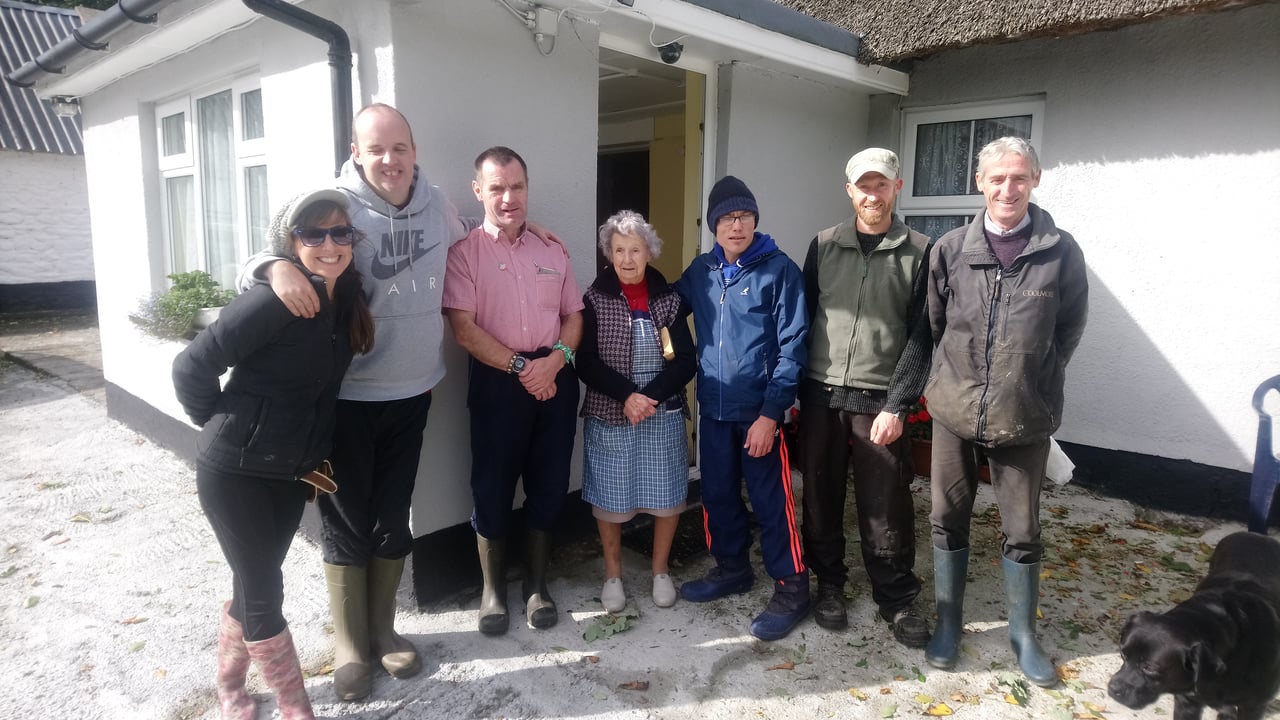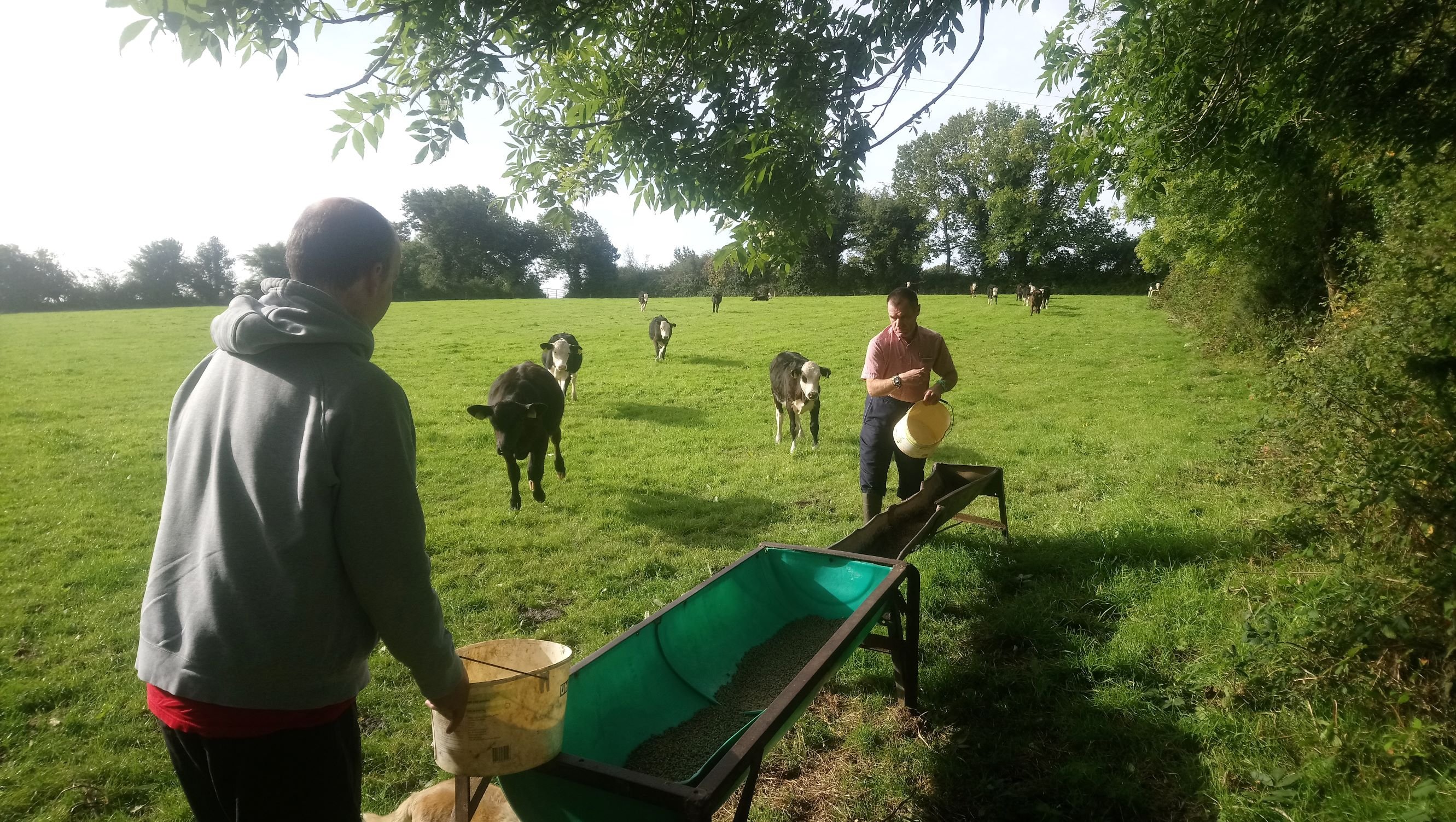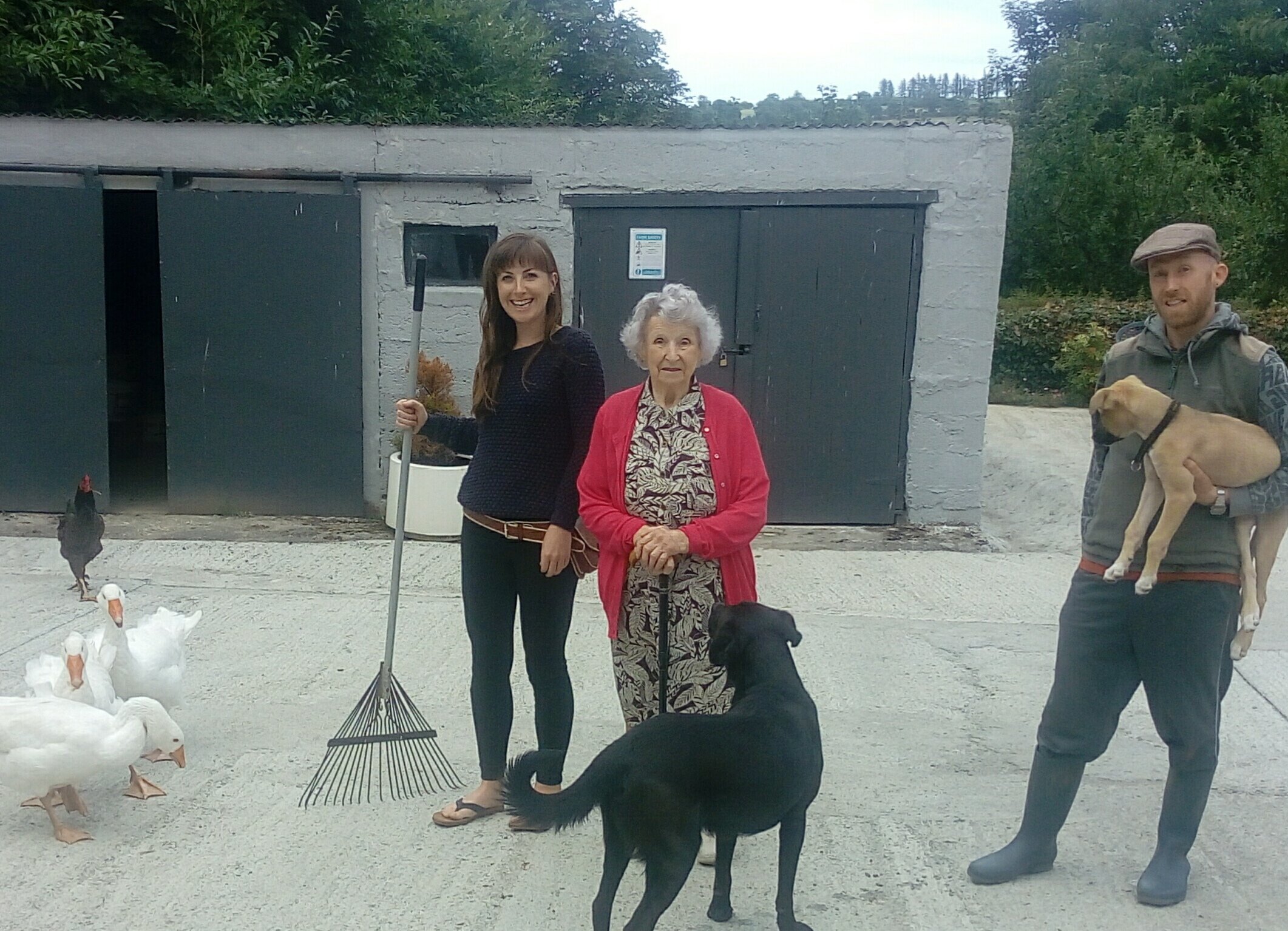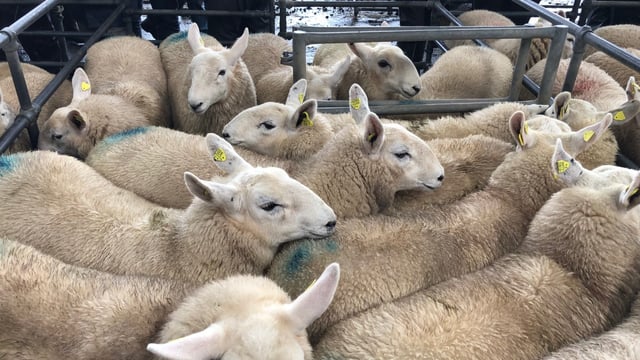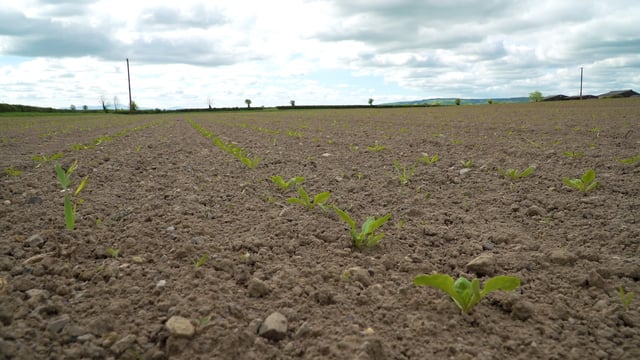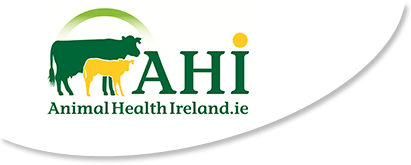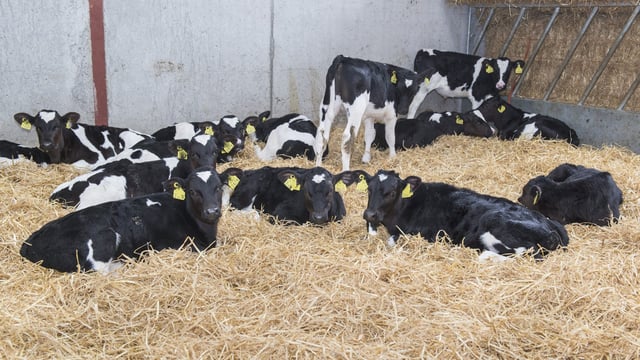3 generations embrace social farming
Social farming is being embraced by three generations of the Sullivan family from Lemybrien, Co. Waterford. Brian, the youngest of the three generations, participated in social farming training in 2018, having had an interest in the concept from his time as a support worker in the disability and mental health sector since 2001.
Brian also studied social care; disability; behavioural therapy; general nursing; and social inclusion. His partner, Niamh, is an holistic health therapist. In 2019, Niamh, along with Brian’s mother, Peggy, availed of the training delivered by Social Farming Ireland in Nenagh.
The family’s small traditional farm set in the foothills of the Comeragh mountains runs a calf-to-beef enterprise. They keep a few horses and some poultry – hens, ducks and geese – and have a polytunnel where they grow some of their own vegetables.
They also have a small orchard where the poultry are free to roam. Some areas of bogland and woodland have been fenced off for the past number of years and these are now important habitats for natural bird and wildlife. In recent years a large pair of European buzzards nested in the wood.
“The social farming day usually starts by feeding the poultry and collecting the eggs. Then we would usually move on to feed and check on the other livestock – the cattle, horses and pony,” said Brian.
Social aspect
Establishing and developing relationships is at the heart of the social farming experience. One of the most important times of the day happens around the kitchen table where everyone congregates to chat about what is happening on the farm, at home or in the wider community.
The time out enhances the social aspect of the placement. This is when another generation, granny Biddy, comes to the fore, with the kitchen of her thatched cottage opened up and everyone invited in for tea.
“Tea break is always taken in my grandmother’s cottage on the farm and usually my mother Peggy and partner Niamh would also join us. Sometimes my brother and his partner who often work with the horses around the farm would also come and join us,” Brian said.
“Granny would always bake a cake of currant soda bread the day before the lads arrived and we would enjoy that during our tea break. Granny loved to see the lads come on social farming days as it reminded her of the old days when work men and neighbours came to help on the farm at busy times,” he said.
“I look forward to seeing them coming. I like doing something for them,” said Biddy who is in her 95th year.
Social farming has had benefits for the farm family as well as the participants, according to Brian.
Of the three generations that live on the farm, we are probably never together from one end of the week to another but on the social farming day we all sit down together and have the coffee and lunch together. It has brought great life back to the farm.
His mother, Peggy, also gets great satisfaction from social farming.
“We look forward to it every week. We are really all great friends. We get time to get to know each other and find out about the different activities the boys are engaged in when they are not here. We have learned so much about their lives and their past, it’s so interesting. And we have a good laugh during the day,” she said.
All placements are on hold at present due to Covid-19. However, Gillian McCarthy, the south-east regional development officer who is based in Waterford Leader Partnership as part of Social Farming Ireland, is happy to handle queries about social farming in the south-east.
She looks after all the network interests in Wexford; Carlow; Kilkenny; South Tipperary; East Cork; and Waterford.

